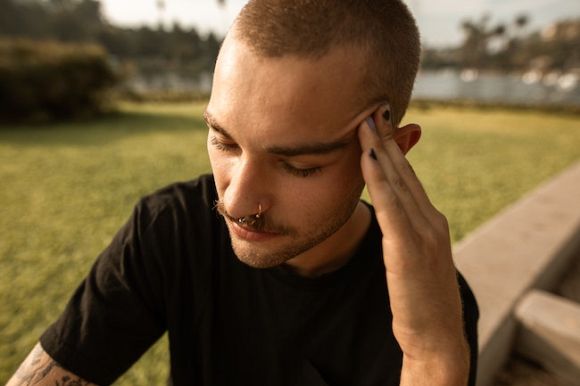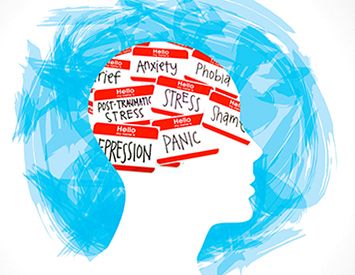For too long, people with lived experience of mental health have been excluded from policy discussions, like the upcoming debate over Medicare rebates, writes Simon Katterl.
IN 2013, I RETURNED from working overseas in aid and development in East Timor. I was in a poor state.
I walked around at 60 kilograms (20 kilograms lighter than I am today), was at times mute and unable to speak, and at other times unable to stop myself from speaking out loud. (Awkward on buses!) I felt unsafe in my own home and body, but not safe to leave. I regularly battled with the urge to kill myself.
These feelings returned periodically. It was a mix of family, friends, trusted relationships and a supportive counsellor that kept me alive. That mix looks different to different people, some using medication (as I have), psychiatrists (as I have) and other mental health professionals. Equally, some find these techniques and professions harmful to use and scary to engage with, as I have witnessed.
I was one of the lucky ones, though. I had the support networks I needed. My family helped rather than hurt me.
My engagements with the mental health system were on my terms. That’s not to diminish how hard these experiences have been for me, but I feel a sense of privilege that my experiences of "care" have alleviated distress rather than, like many others I know, caused or exacerbated it.
Mental health systems in Australia – like elsewhere – have a dark history. That history includes using insulin comas, involuntary electroconvulsive therapy (ECT), being put in straitjackets, long-term detention within asylums with poor conditions and more. These were practices enabled by discrimination and exclusion.
It’s a history we rarely talk about. If we do, the professions responsible for that history often call in a surgeon, cutting a neat incision between the "dark old days" of psychiatry and the present. Unfortunately, the cut is not that clean.
Our past deeply influences our present. Involuntary ECT remains a common mental health intervention. People are not put in insulin comas anymore, but they are made unconscious for days and often given involuntary treatments as a form of "behaviour management".
People, including children, are still handcuffed, restrained and locked away in seclusion, despite the profound trauma it causes. Asylums still exist, just in another form, by another name. In Australia, we call them (SECUs) "secure extended care units" — and you often must pay for the privilege of your years-long detention.
And again, as reform discussions emerge, so do the same voices. In recent months we’ve seen the periodic burst of interest in mental health policy — this time over the Commonwealth Government’s decision to reduce the number of Medicare rebated psychologist sessions from 20 to ten under the Better Access initiative.
Absent from these debates and government consultations are, as usual, the people who use the services.
Industry leaders continue to make the case for reform, stating that they are the ones who truly understand the interests of people with lived experience.
Is it the psychiatrists? Is it the clinical psychologists? The general psychologists? General practitioners? Professional and industry bodies bustle for the limelight, moral high ground and the minister’s ear.
Absent from these debates and government consultations have been, as usual, the people who use the services.
Until just days ago, no Australian state lived-experience peak body had been invited to the Better Access forum on 30 January, despite several mental health organisations and professional bodies having had invitations for weeks.
As this article went to press, invitations did come admitting lived-experience representatives to the forum — though, notably, following a freedom of information request asking for an attendance list.
This is welcome as their voices are crucial. State peak bodies often represent the most disadvantaged people who experience mental health and who experience harm within the system.
Flourish (peak body in Tasmania) chief executive officer Tash Smyth told Independent Australia:
"Too often forums like these are dominated by organisational representation which is disconnected from the broad consumer base. Any formal discussion about the needs of mental health consumers should have an equal representation of consumers at the table."
If government and industry leaders end up listening to the people they claim to speak and act for, they will hear different messages.
In 2019 the Victorian Mental Illness Awareness Council (VMIAC) released 'The Declaration'. It was the product of extensive engagement with its members — some of the most structurally disadvantaged people with mental health issues or psychological distress. They asked for art therapy, peer workers and more trauma specialists. They rated yoga instructors as valuable as psychiatrists.
Craig Wallace, chief executive officer of VMIAC, told IA he looks forward to the debate on how future decisions concerning the Medicare scheme should be made:
"The redesign and review of Better Access should incorporate the views of consumers beyond those using the program by working closely with consumer peaks and supporting a coordinated national consumer voice."
The latter – a national consumer lived-experience voice – has been absent from all of the Commonwealth Government’s mental health policy.
The exclusion of people with lived experience from these policy debates is an indictment on the state of policy design in Australia. It will create worse policies. And we’ll be here again, with the same players saying the same things, asking for more money.
To be sure, there is an important conversation to be had over equity, outcomes and the proper use of finite taxpayer money in mental health care.
But for those calling for more radical reform, it would be wise to show greater deference to people with lived experience. Because those of us working in mental health care are servants of those in distress, not their masters.
Simon Katterl (he/him) is a mental health and human rights advocate with lived experience of mental health issues. He has advised government ministers and legal and mental health services. You can follow Simon on Twitter @simonkatterl.
Related Articles
- Mental health: Why our voice matters
- Rising child suicides should alarm all of us
- To improve mental health systems we must connect with their users
- Telehealth would improve Australia's mental health statistics
- Emma Raducanu's rise to fame highlights dangers of media scrutiny
 This work is licensed under a Creative Commons Attribution-NonCommercial-NoDerivs 3.0 Australia License
This work is licensed under a Creative Commons Attribution-NonCommercial-NoDerivs 3.0 Australia License
Support independent journalism Subscribe to IA.














